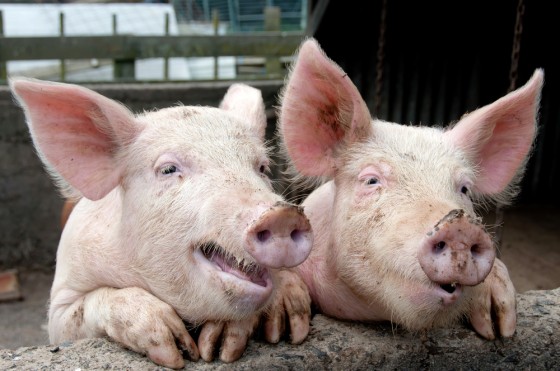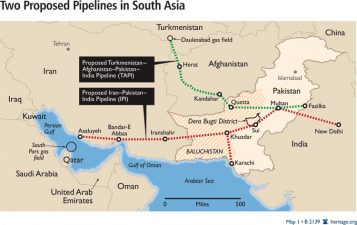 Reduce one food source and increase pressure on others.
Reduce one food source and increase pressure on others.
We’re all going to die! Only a lot later and with healthier arteries according to political satirist Stephen Colbert’s side-splitting riff on recent reports that the global bacon supply is “cooked”.
Britain’s National Pig Association released data recently showing that European pig herds are declining “at a significant rate” in a trend mirrored around the world. Nothing sinister at play here, it’s chalked up to conscious decision-making by individual farmers as they react to rising feed prices. Those price spikes, in turn, can be pinned on global warming and growing competition for corn and soybeans from processed foods and biofuels. Think this doesn’t matter to pork-eschewing folks in Israel, Jordan, Lebanon and Gulf states?
Think again, too, my vegetarian friends. America’s Corn Belt suffered its worst drought in 56 years. Devastated corn and soybean crops in that nation translate into less feed for the rest of the world: America’s the top supplier. So, operating costs rise for commercial pig farms across the European Union (EU), who react by reducing herds. It’s a trend that’s “being mirrored around the world,” according to the Financial Times. Other types of animal ranching are also feeling the pinch.
Pigs may seem an unlikely economic indicator, but in China, as example, the food price cycle is driven largely by pork, China’s staple meat. In the next 6 months, Chinese farmers are also expected to stage sell-offs to cut steep overheads. The resultant reduction in animal stocks will cause prices to surge. Increased food prices bump up inflation, but rising prices will also fuel social unrest. China imports 60% of the global soybeans commodity and is the sixth-biggest corn importer.
Next year, the number of pigs slaughtered throughout the EU could drop 10%, doubling European pork prices. The US Department of Agriculture reported that last month America’s warehoused pork soared to record highs, rising 31% to over 580 million pounds. This supply bulge becomes problematic when hog stocks are not replenished. Grab those chops while you can, America, because when this batch goes the next shipment will be smaller and costlier.
And here, Patient Reader, is where the story comes back to Middle Eastern pantries.
What do you think pork-eaters will turn to when it’s priced beyond their means? Potentially, if this trend continues, beef and chicken farmers (also dependant upon vegetable-based feedstock) will drop production. Our food streams are interlinked, it’s the perfectly named “foodchain”.
No pork? It’ll stress chicken, beef and fish producers. People in lower economic brackets will depend more on grains and vegetables. The global shopping cart gets filled in new patterns.
Green Prophet’s reported on Iranians who are moving towards vegetarianism since meat is no longer in the budget. Tafline’s written about how Iranian films may be banned if chicken meals play a cameo role due to concerns it would incite the poor to rebel. Last July, the World Bank reported world food prices jumped 10% higher than June figures. Soybeans rose 17%, while corn and wheat skyrocketed 25%.
The Guardian stirred the pot, reporting that we may need to switch to a near-vegetarian diet over the next four decades “to avoid catastrophic food shortages.” This warning stems from concerns that water-dependent meat production for a predicted 9 billion people is unsustainable. It takes tenfold as much water to sustain a meat-based diet as it does to support a vegetarian one.
“There will not be enough water available to produce food for the expected 9 billion population in 2050 if we follow current trends and changes towards diets in western nations,” the report by the Stockholm International Water Institute (SIWI) said.
Reduce one food source and increase pressure on others. This is serious stuff. Even the International Federation of Competitive Eating has reacted announcing it will suspend all bacon eating contests. In a news release to the Huffington Post, Richard Shea said calling off the competitions “was the right thing to do. We cannot, in good conscience, allow [top ranked eater] Joey Chestnut to eat bacon during a global pork shortage,” said Shea. “We estimate that Joey alone could eat 20 pounds of bacon in 10 minutes of competition.”
But perhaps think of it this way. The supply chain and transportation of meat and dairy and their by-products create over half the world’s greenhouse gas emissions. Less meat-eating means less agricultural water consumption and a steep cutback in global methane production. So this could be the start of a paradigm switch, an after-effect of global warming that may actually force more sustainable behaviors on us. Just don’t hog my hummus.
Picture of happy pigs from Shutterstock



